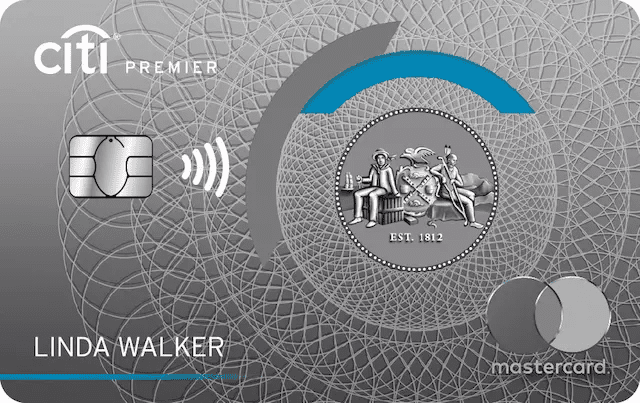A Mutual of Omaha home equity loan can serve as a powerful financial tool for homeowners looking to leverage their property’s value. Whether you need funds for home improvements, debt consolidation, or unexpected expenses, understanding the intricacies of these loans is crucial for making informed decisions. This guide will explore the various aspects of Mutual of Omaha home equity loans, including rates, requirements, the application process, customer reviews, and loan term options.
Toc
- 1. Decoding Mutual of Omaha Home Equity Loan Rates and Interest Structures
- 2. Navigating Mutual of Omaha Home Equity Loan Requirements
- 3. Exploring Mutual of Omaha Home Equity Loan Term Options
- 4. Customer Insights: Mutual of Omaha Home Equity Loan Reviews
- 5. Related articles 02:
- 6. Current Trends in Home Equity Lending
- 7. Application Process Simplified
- 8. Conclusion: Making an Informed Decision
- 9. Related articles 01:
Decoding Mutual of Omaha Home Equity Loan Rates and Interest Structures

Understanding the intricacies of Mutual of Omaha home equity loan rates is essential for making sound financial decisions. Several key factors influence the interest rates for these loans, and knowing these can help borrowers gauge what they might expect when applying.
How Are Mutual of Omaha Home Equity Loan Rates Determined?
- Market Conditions: Economic factors, such as inflation and the overall health of the housing market, can lead to fluctuations in interest rates. Lenders often adjust their rates based on prevailing market trends.
- Credit Score: A borrower’s credit score plays a significant role in determining the interest rate. Generally, a higher credit score indicates lower risk for the lender, resulting in more favorable interest rates.
- Loan Amount: The size of the loan can also impact the interest rate. Larger loans may come with different terms than smaller ones, as lenders assess the risk associated with the amount borrowed.
- Loan Term: The duration of the loan can affect the interest rate. Shorter loan terms often come with lower rates, while longer terms may carry higher rates due to the increased risk over time.
- Debt-to-Income (DTI) Ratio: Furthermore, your debt-to-income ratio (DTI), which compares your monthly debt payments to your gross monthly income, significantly impacts your interest rate. A lower DTI indicates a greater capacity to repay the loan, leading to potentially lower rates. For instance, a borrower with a DTI of 30% might qualify for a lower rate than one with a DTI of 45%.
Fixed vs. Variable Interest Rate Breakdown
Mutual of Omaha offers two primary interest rate structures:
- Fixed-Rate Loans
- Stable Monthly Payments: This predictability allows homeowners to budget effectively.
- Protection Against Market Fluctuations: Borrowers can secure a rate that won’t change over time, making long-term planning easier.
- Variable-Rate Loans
- Lower Initial Rates: Borrowers may enjoy reduced payments at the beginning of the loan term.
- Potential for Rate Increases: While this can save money upfront, there’s a risk that payments will increase if market rates rise.
As of December 2024, the average Mutual of Omaha home equity loan interest rate hovers around 8.79%. However, rates can fluctuate, making the Mutual of Omaha home equity loan calculator an invaluable tool for potential borrowers to estimate their potential costs and monthly payments based on different scenarios.
Example of Interest Rates
To illustrate the differences between fixed and variable rates, consider the following example:
- Fixed Rate: A $50,000 loan at a fixed interest rate of 8.79% for 15 years will result in consistent monthly payments of approximately $433. This stability can help with long-term financial planning.
- Variable Rate: The same loan at an initial variable rate of 7.5% may start with lower payments of around $410, but if rates increase to 9% after five years, monthly payments could rise to approximately $466.
While fixed-rate loans offer predictability, variable-rate loans can be advantageous if interest rates are expected to decline. For example, a borrower anticipating lower rates in the near future might opt for a variable rate to potentially benefit from lower payments initially. Using the Mutual of Omaha home equity loan calculator can help potential borrowers visualize how different rates will affect their overall loan costs.
Qualifying for a Mutual of Omaha home equity loan involves meeting specific criteria that demonstrate financial stability and responsible borrowing potential. Prospective applicants must understand these requirements to avoid unexpected complications during the application process.
Credit Score Requirements
- Minimum Recommended Score: Generally, a credit score of 620 is required to qualify for a Mutual of Omaha home equity loan.
- Impact of Higher Scores: A higher credit score can unlock more favorable rates and improve the likelihood of loan approval. For instance, borrowers with scores above 740 typically receive the best interest rates.
Loan-to-Value (LTV) Ratio
- Definition: The LTV ratio compares the loan amount to the appraised value of the home.
- Maximum Typical LTV: For Mutual of Omaha, the LTV should generally not exceed 80%. This means that if your home is appraised at $300,000, you could borrow up to $240,000, minus any existing mortgage balances.
Debt-to-Income (DTI) Ratio
- Definition: This ratio measures the amount of debt a borrower has compared to their income.
- Preferred Maximum: Many lenders, including Mutual of Omaha, prefer a DTI ratio below 43% to ensure that borrowers can manage their monthly payments effectively.
Documentation Checklist
To streamline the application process, borrowers should prepare the following documents:
- Proof of Income: Recent pay stubs, W-2 forms, or tax returns to demonstrate income stability.
- Property Appraisal: A current appraisal of the home may be required to establish its value.
- Employment Verification: Lenders may contact employers to verify employment status.
- Personal Identification: A government-issued ID to confirm identity.
The Pre-Approval Process
Undergoing a pre-approval process can be beneficial for potential borrowers. Here’s why:
- Clearer Picture of Affordability: Pre-approval helps determine how much you can borrow based on your financial situation.
- Improved Credibility: Being pre-approved signals to lenders that you are a serious borrower, which may improve your chances of securing favorable terms.
Exploring Mutual of Omaha Home Equity Loan Term Options
Selecting the right loan term can significantly impact your financial strategy. Mutual of Omaha typically offers two primary options for home equity loans: 10-year and 15-year terms.
10-Year Loan Term
- Monthly Payments: Higher monthly payments compared to longer terms, but this allows for quicker debt resolution.
- Total Interest Paid: Lower total interest paid over the life of the loan. For example, on a $10,000 loan at an 8.79% interest rate, the total interest over 10 years would be approximately $5,065.
- Advantages: This term is suitable for those looking to pay off their debt faster and save on interest costs.
15-Year Loan Term
- Monthly Payments: Lower monthly payments make this option more affordable for some homeowners.
- Total Interest Paid: Higher total interest paid over the life of the loan. Using the same $10,000 loan example, the total interest for a 15-year term would be around $8,032.
- Advantages: This term is ideal for borrowers who prefer lower payments and have a longer timeline for repayment.
Summary Table of Loan Terms
| Loan Amount | 10-Year Monthly Payment | Total Interest (10 Years) | 15-Year Monthly Payment | Total Interest (15 Years) |
|---|---|---|---|---|
| $10,000 | ~$125.54 | ~$5,065 | ~$100.18 | ~$8,032 |
| $20,000 | ~$251.08 | ~$10,130 | ~$200.36 | ~$16,064 |
| $30,000 | ~$376.62 | ~$15,195 | ~$300.54 | ~$24,096 |
While 10- and 15-year terms are common, some lenders offer shorter terms like 5 years. Although monthly payments are significantly higher, the total interest paid is drastically reduced, making it a suitable option for borrowers with the financial capacity to handle larger monthly outlays.
Customer Insights: Mutual of Omaha Home Equity Loan Reviews
Online platforms like Reddit and consumer review sites reveal a mixed landscape of customer experiences. Understanding these insights can provide valuable context for potential borrowers.
1. https://phucsonglong.com/mmoga-marcus-personal-loan-alternatives-after-discontinuation/
5. https://phucsonglong.com/mmoga-credit-union-home-equity-loan-your-guide-to-lower-rates/
Positive Feedback Highlights
- Straightforward Application Process: Many borrowers appreciate the ease of the application process, particularly the online submission option.
- Competitive Interest Rates: Customers often highlight the attractive rates offered by Mutual of Omaha compared to other lenders.
- Helpful Customer Service Representatives: Positive reviews frequently mention the professionalism and support provided by customer service agents throughout the loan process.
Areas of Improvement
- Communication Delays: Some customers have reported frustrations regarding slow communication from loan officers, particularly during peak application times.
- Processing Time Variations: While many have had positive experiences, others note that processing times can vary significantly, which can lead to uncertainty.
- Complex Documentation Requirements: A few borrowers have expressed challenges with the amount of documentation required, emphasizing the need for clear guidance.
Insights from Mutual of Omaha Home Equity Loan Reddit
Discussions on platforms like Mutual of Omaha home equity loan Reddit provide a space for borrowers to share personal experiences and tips. Key themes include:
- Importance of Being Informed: Many users stress the significance of understanding loan terms and conditions before committing.
- Personal Stories: Borrowers often share their financial goals, which can provide inspiration and cautionary tales for others considering a home equity loan.
Current Trends in Home Equity Lending
The home equity lending landscape is currently influenced by several significant trends:
- Rising Interest Rates: The Federal Reserve’s recent interest rate hikes have led to a rise in home equity loan interest rates across the board. This makes careful comparison shopping and budgeting crucial for borrowers. As rates rise, the affordability of loans can be impacted, prompting borrowers to evaluate their options more critically.
- Increased Competition Among Lenders: Simultaneously, increased competition among lenders is creating a more favorable environment for borrowers, with some lenders offering more flexible terms and lower fees. This competitive landscape provides opportunities for borrowers to secure better deals, making it essential to shop around.
Application Process Simplified
Finding the right Mutual of Omaha home equity loan lenders is essential for accessing home equity effectively. Here’s a step-by-step guide to navigating the application process:
Steps to Secure Your Loan
- Check Your Credit Score: Before applying, know your credit standing to assess your eligibility.
- Gather Required Documentation: Compile the necessary documents, such as proof of income and property appraisal.
- Use the Mutual of Omaha Home Equity Loan Calculator: This tool can help you understand potential monthly payments and total costs.
- Submit a Pre-Approval Application: This step will clarify how much you can borrow and improve your credibility with lenders.
- Complete the Full Loan Application: Provide all required information and documents to Mutual of Omaha.
- Await Approval and Final Terms: Stay in contact with your loan officer to ensure a smooth process.
Pro Tips for a Smooth Application Process
- Provide Accurate Information: Double-check all submitted details to avoid delays.
- Timely Submission of Documents: Respond quickly to any requests from the lender to keep the process moving.
- Proactive Communication: Maintain an open line of communication with loan officers to address any concerns promptly.
Conclusion: Making an Informed Decision
A Mutual of Omaha home equity loan can be a powerful financial tool when used strategically. By understanding rates, requirements, and potential challenges, homeowners can leverage their home’s equity effectively. It’s vital to remain informed about current trends in the lending market, as factors like rising interest rates and increased lender competition can influence your decision.
Remember, every financial decision carries unique risks and rewards. Thorough research, careful planning, and a clear understanding of your personal financial landscape are essential to making the most of a home equity loan. Interested in exploring your options? Contact Mutual of Omaha directly or use their online home equity loan calculator to begin your financial journey today. This guide has equipped you with the knowledge to confidently navigate the world of home equity loans, helping you make informed choices that align with your financial goals.










